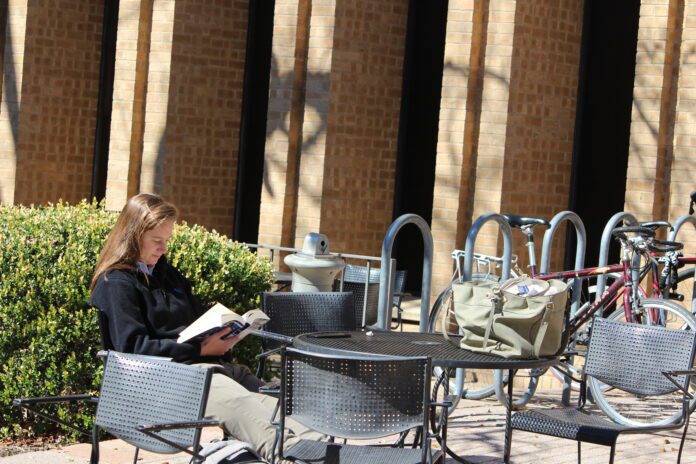
Honoring the body and the soul
Disclaimer:
All articles published within this section of The Cor Chronicle are the opinions of the respective authors and do not necessarily reflect the opinions of The Cor Chronicle.
Today, the phrase “self-care” seems synonymous with bubble baths, face masks and fancy coffees. However, while these things have their place, the scope of true selfcare extends beyond superficials. To truly care for oneself, one must focus not on a momentary escape from the demands of life, but on the consistent habits which lead to lasting happiness.
As a busy student, it can be tempting to relegate habits of self-care to the weekend as things to be done only after completing the academic demands of the week. However, this results in burnout by Thursday and a weekend spent attempting to recover enough to begin the next week. Though classes are demanding and balancing academics with work-study, club meetings and social time is challenging, it’s important to not become so caught up in external duties that one fails to take proper care of oneself.
Instead of confining self-care to a Saturday night face mask, one should have healthy selfcare habits in place throughout the week. These habits of selfcare are not lighting a candle or getting a Cap Bar drink, but instead are more fundamental, more crucial and much more difficult to carry out.
True habits of self-care include exercising, eating well, getting enough sleep, spending time laughing with friends and being disciplined with homework. These habits are certainly more difficult than the practices which are generally termed “self-care,” but also are more effective in terms of caring for oneself. Though the specifics of these habits vary from person to person, a good rule of thumb is to choose the good for your future self rather than for your present self.
This can mean going on a run even when you don’t feel like it, eating vegetables even when fries sound better and choosing to go to sleep even when the rest of your friends are staying up talking. It can also mean turning down an invitation to study with friends so that one can focus on finishing reading for class. These choices are often difficult in the moment, but lead to longer lasting contentment than the fleeting pleasure of the easier option.
However, there are more reasons to take care of oneself besides your own happiness. In 1 Corinthians 3:19 Saint Paul says, “Do you not know that your body is a temple of the Holy Spirit with- in you… and that you are not your own?” If we are only stewards of our bodies which belong to God, then we ought to take good care of them.
Caring for the body affects not only the body, but also the soul. In reaction to the heretical Albigensians, the Dominicans place special emphasis on how the position of your body in prayer affects the disposition of your soul. Similarly, the way we care for the health of our body also has a profound impact on the health of our soul. Nevertheless, the health of the soul also requires our specific care through spending time in prayer and frequenting the sacraments.
An oft-quoted (but slightly out of context) phrase from film producer Jac Vanek reminds us that we “are the books [we] read, the films [we] watch, the music [we] listen to”. What we take into our mind through the senses of our body has a profound effect on our soul and who we become.
Philippians 4:8 says “Whatever is true, whatever is honorable, whatever is just, whatever is pure… if there is any excellence and… anything worthy of praise, think about these things.” Thus, the care of our soul must include not only daily time in prayer, but also prudence in what we take into our mind and spend our time thinking about.
True self-care, then, is not about occasional self-indulgence and escapism, but rather about living a consistently healthy lifestyle for both body and soul. True self-care aims at your flourishing as a human person and therefore requires hard work, just as hard work is required for a garden to flourish. There’s certainly a place in life for relaxing with bubble baths and fan- cy lattes, but to think that self-care rests primarily in these is to do yourself a disservice.